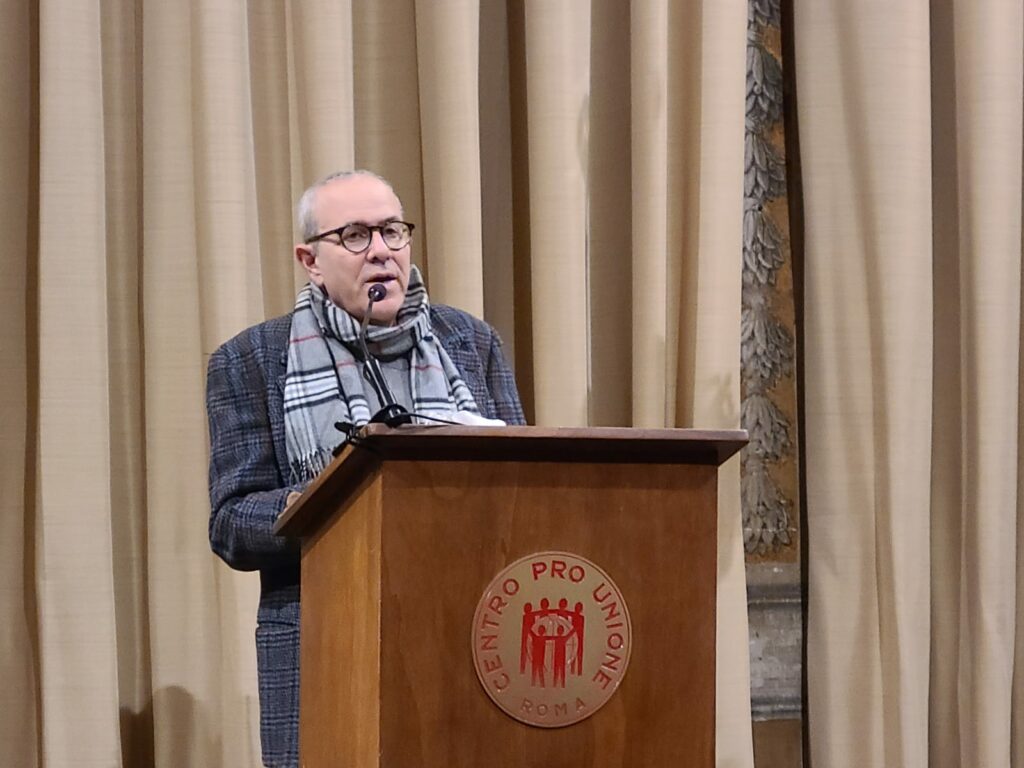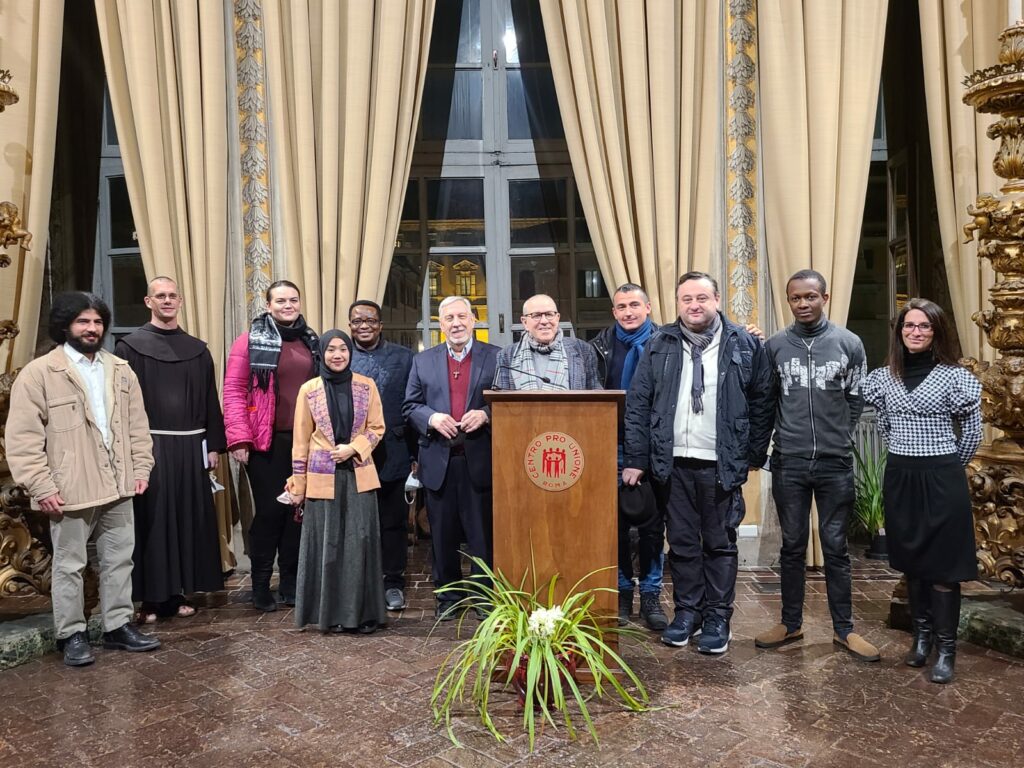While COVID-19 still makes it challenging to organize in-person courses or lectures, we were lucky to have Prof. Menachem Lorberbaum with us in Rome. Prof. Lobrebaum is Vice dean and professor at the department of Jewish Philosophy and Talmud of Tel Aviv University, Israel.
Prof. Lorberbaum is offering an intensive three-weeks course to the Russell Berrie Fellows and other Angelicum students on The Political Structures of the Hebrew Bible. During his stay, he gave a co-sponsored John Paul II Center for Interreligious Dialogue and Centro Pro Unione lecture on February 24 entitled “On the Task of Theology: Theological Foundation of Interreligious Dialogue from a Jewish Perspective.”
People in Rome were able to attend the lecture in-person at the wonderful venue of the Centro Pro Unione whose windows grant visitors one of the best views of Piazza Navona and the Bernini Fountain. The lecture was live streamed so that it was possible for more people to follow it online.

“Theology cannot be but comparative,” said Prof. Lorberbaum at the beginning of his lecture. “Our perspective on the Divine is from the world and that world is a shared one,” therefore, “after having been blessed with Revelation, we have to take responsibility for this shared world,” he continued.
The importance of responsibility came back to the floor various times. Mentioning an encounter with a Muslim believer, Prof. Lorberbaum shared what he learnt from him: “He told me that when you approach God, you first have to pray for the world.” Answering a question on how he personally lived this dimension, Prof. Lorberbaum talked about his attempt to be “a responsible citizen trying to make a difference where I am. What we can do is always limited but we have a responsibility to alleviate people’s suffering.”
Talking about interreligious dialogue, Prof. Lorberbaum challenged the audience asking what we expect from it. “I don’t think – he shared – that interreligious dialogue calls for a unitarian form of religiosity. We have particular languages and identities, and I don’t believe we are called to overcome it.” Our particularities are inescapable and it is part of who we are.
This diversity leads us often to very meaningful encounters and that was the case for Prof. Lorberbaum in Rome. “As a Jewish scholar of Torah, one of the greatest experiences I have here in Rome is that my Catholic students share with me what it means for them to meet God,” he said.
Check the Youtube channel of the Centro Pro Unione in the next days, the lecture will be available there!

